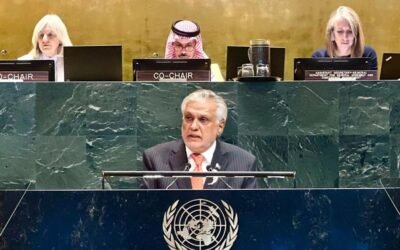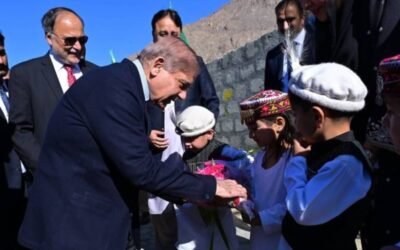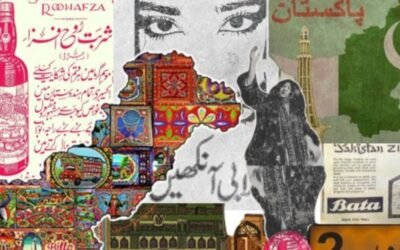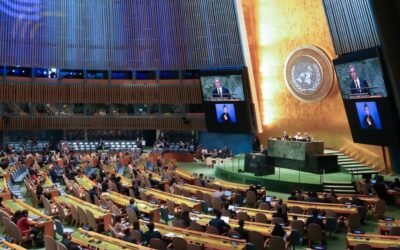Every year on the 14th of August, Pakistani people celebrate their independence with a lot of pride and are aware of the sacrifices and struggles made to make the dream of a free Pakistan come true. Although the leadership of Quaid-e-Azam Muhammad Ali Jinnah is known to many people, there is an existence of other visionaries who had vision and ideas that had an influence in determining the identity of the new nation.
One of them was a man named Chaudhry Rehmat Ali, who was the originator of the name Pakistan for our motherland. When he was studying in 1933, he introduced it with his now well-known pamphlet, Now or Never, which boldly posited the creation of a separate homeland for the Muslims in the subcontinent. It is significant to remember his contribution on Independence Day since the name of a nation does not consist of some word combination but has a history, identity, and is a vision of the future.
Early Life and Education
Chaudhry Rehmat Ali was born on 16 November 1895 to parents Mufti Ali and Naima Bibi, in the Hoshiarpur district of British India, Punjab. He grew up in a poor agricultural background, which sparked a keen interest in studies at a young age. Upon basic local studies, he furthered on to a course at Islamia College, Lahore, where he also acquired a fascination with politics and the state of Muslims in the region under British authority.
Later, Rehmat Ali went to England to study in a higher educational establishment in the 1920s and joined. This place is Cambridge University, where he studied law. During his stay in the United Kingdom, he was an active participant in the Indian political debates concerning the future of India. His experiences in Cambridge with other Muslim students and intellectuals, as well as the general atmosphere in Cambridge, heightened his vision of the Muslim need to have their homeland in South Asia. Here, the notion of Pakistan started appearing in his mind.
You May Like To Read: Pakistan’s Fiscal Health: Tackling the Growing National Debt
Vision and Ideology
Chaudhry Rehmat Ali not only gave a name to a country but truly envisioned a union of multiple Muslim states in South Asia. His vision of Pakistan was merely the initial phase of his plan of what he referred to as Pak-Asia, where he shared many others’ proposed areas like the states of Bengal and Assam, named Bang-i-Islam, and Hyderabad Deccan states, named Osmanistan, amongst many others. According to him, this would enable the Muslims in the various parts of the country to live with political autonomy, shield their right to worship, and preserve their own cultures.
Rehmat Ali was convinced that Muslims had to have total political divorce from the Hindu majority. The fear that Muslims will be politically marginalised under a single central government influenced his line of thinking. He envisioned independence as a political requirement, but moreover as a religious obligation to scavenge the Islamic way of life.
But his ideology was also in conflict with the policies of the Muslim League and other key figures to struggle as they were initially more patient in their approach. Although they did end up gravitating towards the concept of partition, Rehmat Ali was more dogmatic and larger in vision in that he pursued a larger system of Muslim homelands as opposed to a single Pakistan. Despite this, he managed to introduce daring thoughts that later served as the foundation for important decision in the struggle for Pakistan eventually leading to its formationi in 1947.
Coining of the term `Pakistan`
The political situation in India at the beginning of the 1930s was strictly tense, as the necessity of self-government had increased, and Muslims were worried about the future with the majority of Hindus. As he studied in England, Chaudhry Rehmat Ali started to consider a radical solution and formed the idea of bringing about the formation of a separate homeland of Muslims in the upper western regions of India.
On January 28, 1933, he, together with a small group of like-minded Muslim students, issued a pamphlet entitled, Now or Never; Are we to Live or Perish Forever?”. This is a historic document and was circulated among delegates who were attending the Third Round Table Conference in London. In this, Rehmat Ali had insisted that Muslims of Punjab, the North-West Frontier Province (Afghania), Kashmir, Sindh, and Baluchistan came to form a new independent state.

Pamphlet | Now or Never
This pamphlet is where the name of Pakistan is first found. Rehmat Ali described that it was its name but also an acronym based on the territories that he imagined the new state would comprise: P as the Punjab, A as Afghania (NWFP), K as Kashmir, S as Sindh, and the suffix -stan as Baluchistan. In addition to the acronym, the word Pakistan stood as the translation of Land of the Pure in Persian and Urdu and represented a Muslim homeland where they could exercise their religion, culture, and political identity. It was the student who had the vision in a country that is thousands of miles away in his home country that a new nation would come in 1947.
Remembering Chaudhry Rehmat Ali on his birth anniversary today. 🇵🇰 pic.twitter.com/hJU76Ymgy4
— Government of Pakistan (@GovtofPakistan) November 16, 2018
Later Life, and Legacy
Following the emergence of Pakistan as an independent nation, he went to Pakistan, hoping that his dream would soon come to fulfillment. Rehmat Ali had envisaged a federation of many Muslim states, yet Pakistan came into existence as two halves, East and West, without the other regions he had delved into. He was unpopular with the ruling elite because of his critiques of the government, and soon, he was compelled to leave the country.
You May Like To Read: Pakistan’s Energy Crisis: Can Renewable Energy Save the Day?
Exiled, he returned to England, where he experienced a meager life. He was an impoverished man and spent most of his deathbed, even though he left his mark on history. Chaudhry Rehmat Ali died in February 1951 in Cambridge, a long way away and thousands of miles apart, from the homeland which he had named to the world.
His tale is a kind of reminder of Independence Day that the birth of the nation is not only connected with political fight, but with tremendous ideas and visions. The name Pakistan has writ large in it, the spirit of his dream, a dream of a land where Muslims could live with freedom, dignity, and pride. Chaudhry Rehmat Ali is not the only man in whose memory we have to live; it is that of the man who assisted us with our name.




























